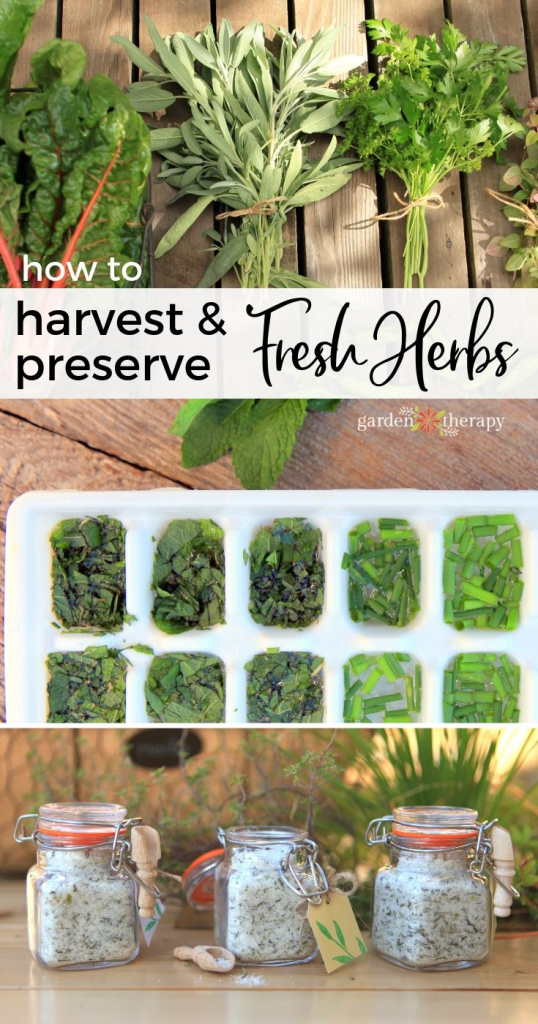If you’re wondering how to preserve herbs and keep them fresh for longer, you’re not alone. Fresh herbs bring vibrant flavor and nutrition to our dishes, but they often wilt away before we can fully enjoy them. With the right herbs storage tips, you can extend herb life and ensure that they remain a staple in your kitchen. From proper washing and drying techniques to strategic packing methods, these simple yet effective practices will help you maximize the longevity of your culinary greens. Dive into our guide on fresh herb preservation and learn how to prevent your precious bunches from becoming sad, wilting leaves.
When it comes to maintaining the vitality of your aromatic greens, knowing the best methods for keeping herbs fresh is essential. The journey from garden to table can be troubled by the swift degradation of plant life if not handled correctly. Utilizing effective strategies for storing herbs can ensure you get the most out of them, utilizing every last leaf in your culinary creations. Whether you’re looking to extend the life of your basil or find innovative ways to make your rosemary last, having a few key techniques in your culinary toolkit will revolutionize your herb-enhanced meals. Discover how to effectively manage your green treasures and keep them vibrant and flavorful.
Essential Tips for Keeping Herbs Fresh
To start with, choosing the freshest herbs is vital for extending their life. When you’re at the market, look for vibrant, perky leaves and stems that are well-hydrated. This not only ensures a longer shelf-life but also enhances the flavor profile of your dishes. Avoid purchasing herbs that have wilted or discolored leaves, as they signify age and degradation that can negatively impact your culinary creations.
Once you bring your herbs home, prepare them for storage immediately. Rinse and dry them thoroughly to eliminate any dirt and bacteria. This process helps in maintaining the freshness of herbs, as residual moisture can lead to spoilage. By following these essential tips, you’re setting the table for optimizing both the longevity and usability of your herbs.
How to Preserve Herbs for Long-Term Use
Knowing how to preserve herbs can significantly impact your culinary experience. One effective method is to wrap well-dried herbs in a paper towel before placing them in a ziplock bag. This technique helps control moisture levels, ensuring your herbs remain fresh without turning mushy. For those who want to go a step further, consider freezing herbs either in oil or water, creating flavor-packed ice cubes that can spice up various dishes all year round.
For garden-fresh herbs, proper care is essential to maintain their aromatic qualities. Harvest early in the day, and always use clean, sharp shears to avoid damaging the plant. After bringing them home, placing your living herbs in a jar of water, akin to cut flowers, can extend their life and keep them vibrant. Being mindful of how you handle and store your herbs is the key to successful preservation.
Storage Solutions for Fresh Herbs
Understanding the right storage solutions can greatly extend the shelf life of your fresh herbs. A common method involves keeping herbs in a glass of water, much like a bouquet. This technique not only keeps them hydrated but also allows for easy access when you’re ready to cook. Remember to change the water every few days; this simple step can make a significant difference in how long your herbs stay fresh.
When using plastic storage bags, always ensure that the herbs are completely dry before sealing. This prevents moisture from building up, which can lead to a swampy mess. Air circulation is another crucial factor; using a generously sized bag will facilitate this. Consequently, your herbs will be stored in optimal conditions, allowing you to keep them vibrant for much longer.
Creative Ways to Use Herbs Before They Wilt
Instead of treating herbs merely as garnishes, consider incorporating them as main ingredients in your meals. This is a common approach in many cuisines, particularly Persian kitchens, where herbs are a central component rather than an afterthought. Adding a generous handful of chopped herbs to rice, soups, or pasta can elevate the flavor and make sure you use them before they spoil.
Other creative uses include adding fresh herbs to salads—think maroulosalata with chopped dill or cilantro. Utilizing herbs generously not only enhances the meal but also prevents waste. The more you experiment with incorporating herbs into your dishes, the less likely they are to wilt away without ever being appreciated.
Freezing Herbs to Extend Their Life
For those moments when you find yourself with an herb surplus, freezing is a fantastic option to consider. Finely chopping your herbs and packing them into ice cube trays with a bit of water or olive oil locks in the flavor and aroma. Once frozen, these cubes can easily be transferred to resealable bags, making them perfect for future use in savory dishes or refreshing drinks.
Opting for freezer bags is also a practical approach; simply mix chopped herbs with oil and spread them thinly before freezing. This method not only preserves the quality but also allows you to break off bits of herb as needed, minimizing waste. Freezing herbs is a smart technique that ensures their flavors last well beyond their typical shelf life.
Understanding Herbal Moisture Needs
Another crucial factor in keeping your herbs fresh is understanding their moisture needs. Fresh herbs thrive in a balance of hydration—not so dry that they become brittle and not so wet that they turn slimy. Rinsing your herbs before storage can be beneficial, as long as you dry them thoroughly afterward. Techniques like using a salad spinner or blotting with paper towels can effectively reduce excess moisture.
Remember that different herbs have different moisture requirements. For instance, basil prefers more humidity compared to hardier herbs like rosemary. By tailoring your storage methods to the individual needs of each herb type, you can significantly enhance their longevity, ensuring that they stay fresh longer.
The Benefits of Using Fresh Herbs in Cooking
Integrating fresh herbs into your cooking not only boosts flavors but also contributes to a variety of health benefits. Herbs like parsley, cilantro, and basil are loaded with vitamins and antioxidants, making them a smart addition to any dish. Their flavors can transform even the simplest meals into culinary adventures, showcasing why they should never be an afterthought in the kitchen.
Moreover, using fresh herbs encourages a more vibrant diet. If you think of herbs as vegetables rather than just garnishes, you’ll likely find yourself consuming more greens overall. This approach helps in reducing food waste and after all, the fresher the herb, the better your dishes will taste. Experimenting with their uses expands your culinary repertoire and enriches your dining experiences.
Common Mistakes to Avoid in Herb Storage
When it comes to storing herbs, avoiding common mistakes can make all the difference. One typical error is failing to prepare herbs properly before storage. Not rinsing or drying them can lead to bacteria growth, compromising the quality of the herbs over time. It’s essential to handle herbs delicately during preparation and storage to prevent bruising and damage.
Another frequent pitfall is overcrowding storage containers, which restricts airflow and can lead to premature spoilage. Opt for spacious storage solutions that allow air circulation around the herbs. This simple change can dramatically extend their life, allowing you to enjoy fresh herbs longer while reducing waste.
The Role of Temperature in Herb Preservation
Temperature plays a significant role in herb preservation. Storing herbs in a cold environment, such as the refrigerator, can slow down degradation, helping them last longer. However, it’s essential to maintain the right balance; extreme cold can freeze delicate herbs while insufficient cooling can lead them to rot quickly. Understanding the temperature requirements for different herbs can optimize your preservation efforts.
For those who grow their own herbs, consider how temperature fluctuations can impact freshness. Indoor herbs should ideally be placed in a spot that receives indirect sunlight without extreme temperature changes. By being mindful of your herbs’ temperature needs, you can ensure they endure longer in your kitchen, making your cooking endeavors more enjoyable.
Frequently Asked Questions
What are some effective tips for keeping herbs fresh after purchase?
To keep herbs fresh, start by selecting vibrant and plump herbs at the market. Immediately rinse and dry them to remove any moisture, then store them in a glass of water if you plan to use them soon. For longer-term storage, wrap well-dried herbs in a paper towel before placing them in a resealable bag in the refrigerator. This helps maintain hydration without turning them soggy.
How can I properly store herbs to extend their life?
To extend the life of your herbs, ensure they are thoroughly dried before storage. Store them wrapped in a paper towel inside a resealable food storage bag in the fridge. This helps balance moisture levels, keeping them fresh while preventing spoilage. Keeping enough air circulation in the storage container is also crucial.
What are some herbs storage tips to prevent wilting?
Prevent wilting by handling herbs gently and storing them carefully. After washing and drying, store herbs upright in a glass of water in the fridge if used within a couple of days. For longer storage, wrap them in a paper towel or freeze them in oil or water in ice cube trays.
Can freezing help with fresh herb preservation?
Yes, freezing is an excellent method for fresh herb preservation. Finely chop your herbs and place them in an ice cube tray filled with water or olive oil, then freeze. This method allows you to use herbs later in soups, stews, or smoothies without losing their flavor.
How do I prepare herbs before storing them to ensure they last longer?
To prepare herbs for longer storage, rinse and dry them immediately after purchase, removing any wilted leaves. Store them in a way that minimizes moisture but maintains hydration, such as wrapping in a paper towel and placing in a resealable bag, or keeping in water if using soon.
What should I do if my herbs start to wilt? Can I still use them?
If your herbs start to wilt, you can often revive them by trimming the stems and placing them in water for a few hours. Use them promptly in your cooking, as they will not last much longer, but ensure to check for any signs of spoilage before use.
Are there any specific herbs that are easier to store than others?
Generally, hardier herbs like rosemary, thyme, and sage tend to last longer than softer herbs like basil and cilantro. However, following proper storage methods for all types of herbs—such as drying them well and proper moisture control—can help extend their freshness.
| Key Point | Details |
|---|---|
| 1. Choose your herbs wisely | Select fresh, vibrant herbs without any limp or discolored leaves. Avoid small plastic packages. |
| 2. Prep your herbs for storage right away | Rinse, dry, and remove any wilted leaves immediately upon arriving home. |
| 3. Keep soon-to-be-used herbs hydrated | Store in a glass of water if you plan to use them soon. |
| 4. For longer storage, pack strategically | Wrap well-dried herbs in a paper towel and store in a resealable bag. |
| 5. Handle living herbs with care | Trim and care for living herbs properly to extend their freshness. |
| 6. Use herbs as vegetables, not just garnishes | Incorporate herbs into dishes rather than using them solely as garnishes. |
| 7. When all else fails, freeze | Pack chopped herbs into ice cube trays with olive oil or water and freeze. |
Summary
To preserve herbs effectively, it is essential to understand how to preserve herbs properly to extend their freshness and usability. By selecting the right types of herbs, prepping them immediately after purchase, and using proper storage techniques, you can prevent waste and enjoy the vibrant flavors of fresh herbs in your cooking. Whether you prefer using them fresh straight away or utilizing freezing methods for later use, these simple strategies will ensure your herbs remain delightful additions to your meals.



